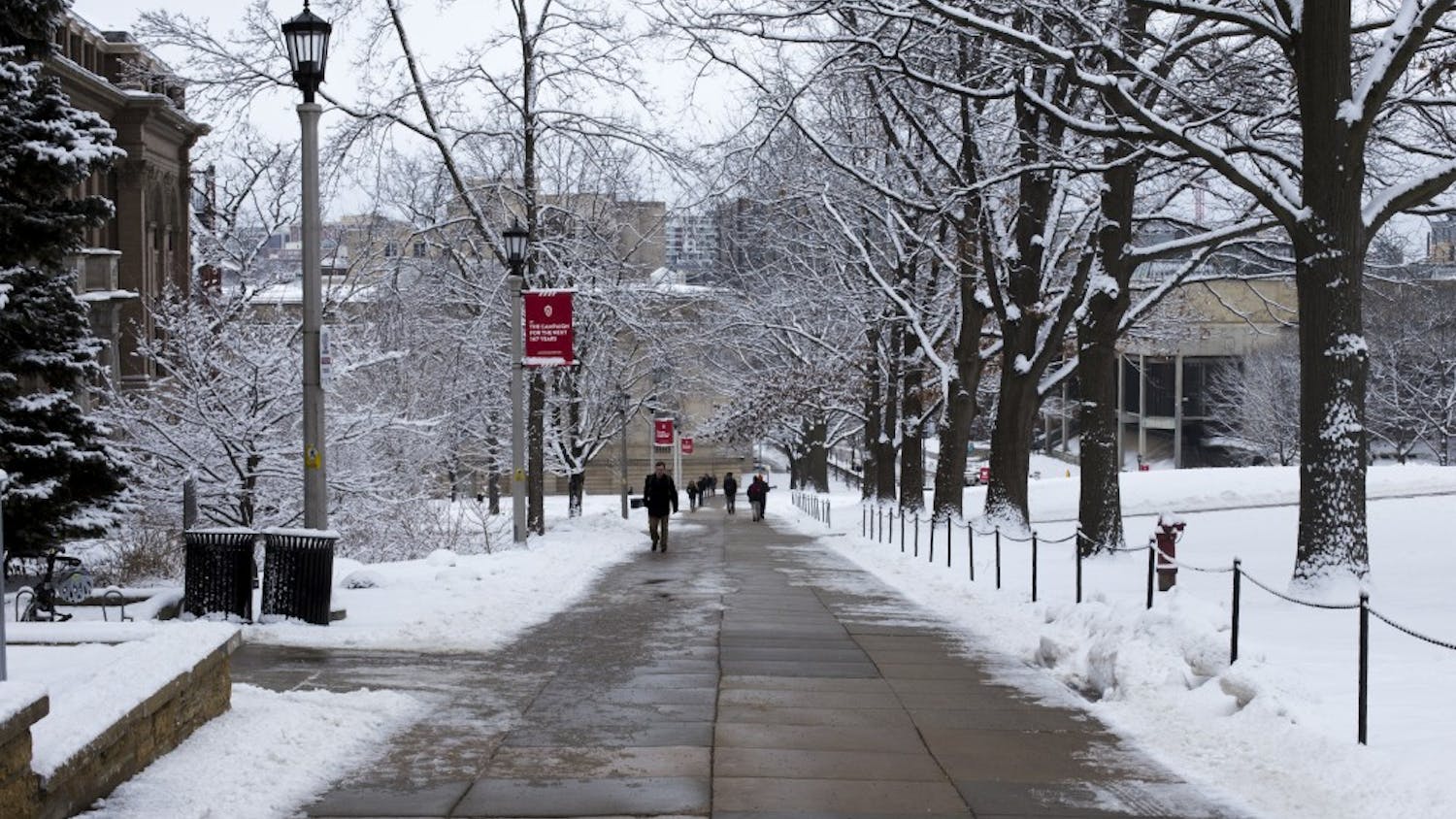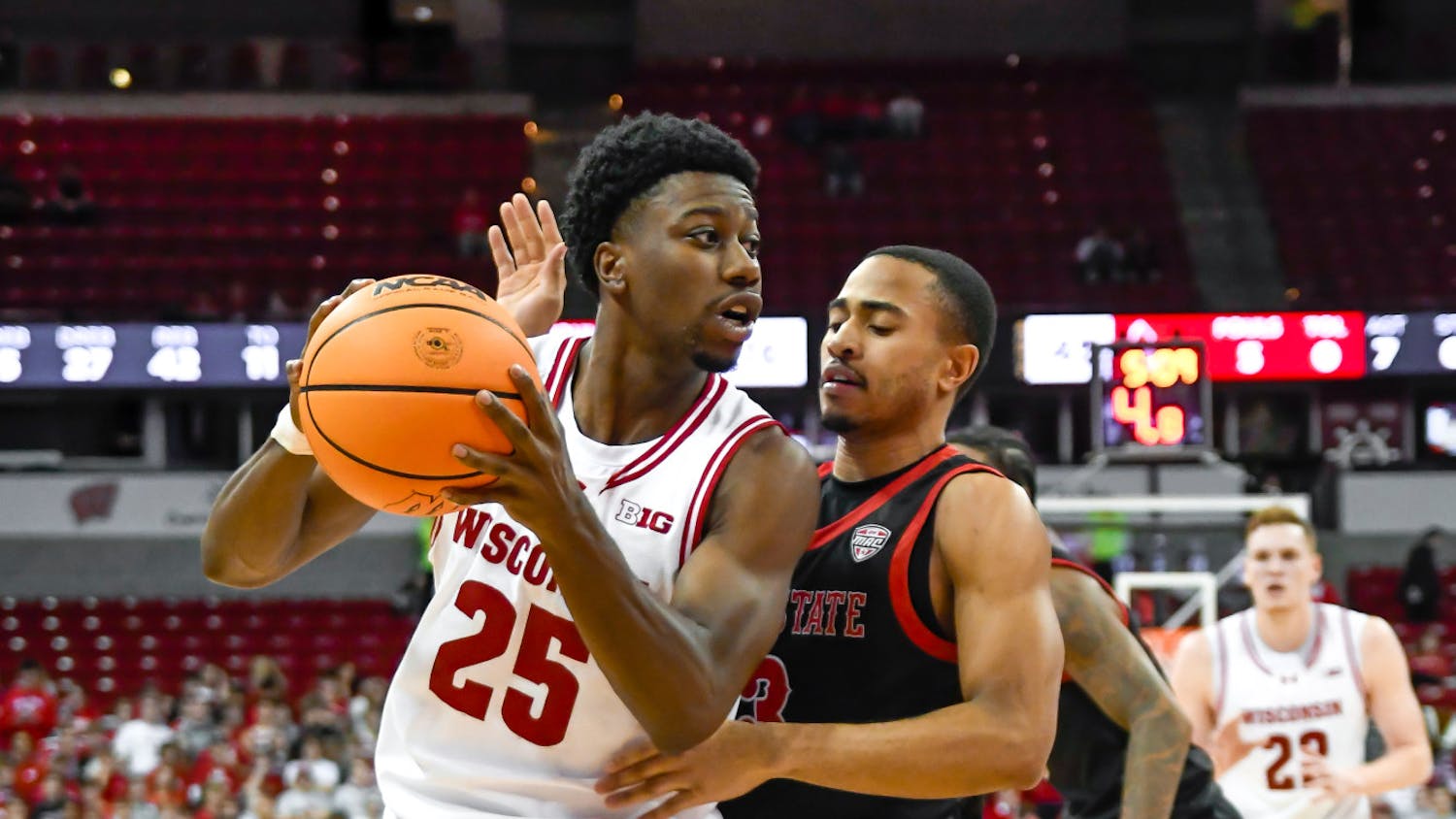Reaching out to mental health services on campus proves difficult for many people, especially if there isn’t a counselor who speaks their native language. But for Mandarin-speaking students at UW-Madison, that barrier is one step closer to being broken.
University Health Services introduced Mandarin-speaking counselor Wei-Chiao Hsu in January 2018. Hsu is the second ever hired Mandarin-speaking counselor after a two-year gap, and the only one serving now on campus.
There are about 6,000 international students on campus, a larger population than all other minority ethnic groups. Data show these students may encounter more mental health challenges than domestic students, and therefore called for a change in UHS faculty demographics.
“We have a diverse student population, and we always want our mental health providers to reflect that,” said Liz Valentine, the human resources team manager at UHS.
Hsu, whose skill is licensed and language level is qualified under Cultural Linguistic Services, stood out in the pool of candidates. Though Hsu is not a U.S. citizen, Valentine and her team decided to send out an offer letter.
Hsu was born and raised in Taiwan. After years of teaching special education, she received additional degrees in North America, knowing students needed more assistance with their mental health.
After completing her master’s degree at UW-Madison, she went back to Taiwan as a counselor to enhance her psychology skills. She received her Ph.D. six years later from the University of British Columbia, Vancouver.
In addition to Hsu’s expertise and counseling experience, her identity as an international student gives her a first-hand perspective of what native Mandarin-speaking students go through.
“This is my dream job,” Hsu said.
Many international students have difficulties acclimating to college. Yu-Tai Chen, a second-year student from Taiwan, recalled challenges in his transition to UW-Madison.
“The most difficult part was to settle in all on my own,” Chen said. “I flew here by myself. My parents weren’t here to help me out, so I had to figure everything out on my own — from settling into dorm rooms, choosing courses and just getting to know the environment.”
Chen also said he struggled with feeling lonely and out of place as a freshman.
“I lived in Witte in my freshman year. I was the only Asian kid living on the entire floor. I didn’t know anyone, did not have any mutual friends with anyone because I didn’t go to high school here,” Chen said.
International students reportedly face unique challenges, like finding an identity, a home and a group of friends. They have also reported facing stereotypes and discrimination from domestic students. According to Hsu, though all students may face similar challenges when transitioning to college, international students certainly face more than domestic students.
“International students struggle more especially with school performance — some because of language barriers and mainly because of cultural differences,” Hsu said. “More serious, some students start questioning the initial reason to come to college and develop imposter syndrome, which is a feeling [like] they don’t belong here or they are not good enough to be here.”
Though Hsu feels pressure at times at such a large university, she hopes she can reach out to more students.
“Two out of three students that I serve are Mandarin-speaking students and the rest I serve are English-speaking students, and for me being here only about nine months or so, this is pretty good,” Hsu said. “But I guess the pressure I get is from knowing that I am the only Mandarin-speaking counselor.”
In attempts to reach more Mandarin-speaking students, UHS and Hsu partnered with the Multicultural Student Center and the International Students Services. They have also dedicated a full page on the UHS website about Hsu’s expertise and service.
Hsu is a health ambassador at ISS where she facilitates a discussion group every other Friday. She also participates in MSC’s “Let’s Talk” program to promote mental health services.
ISS is usually the first stop for international students’ questions about immigration, academics and cultural adjustment.
ISS provides numerous resources, including programs like BRIDGE and other affiliated student organizations aimed at supporting international students.
Valentine expressed concern that the staff is not meeting the students’ needs because of an uneven staff to student ratio. However, Valentine said UHS will continue to work to increase staff to meet students’ demand.
Hsu hopes to expand from just one-on-one counseling to include group counseling and provide mental health services to more students on campus.






